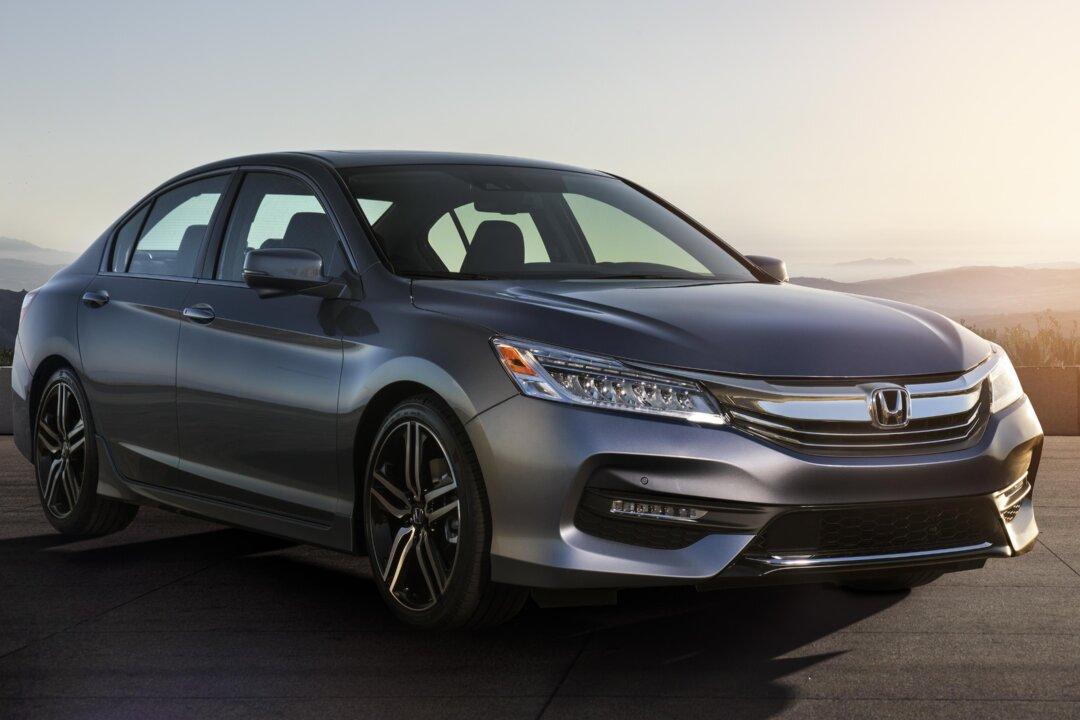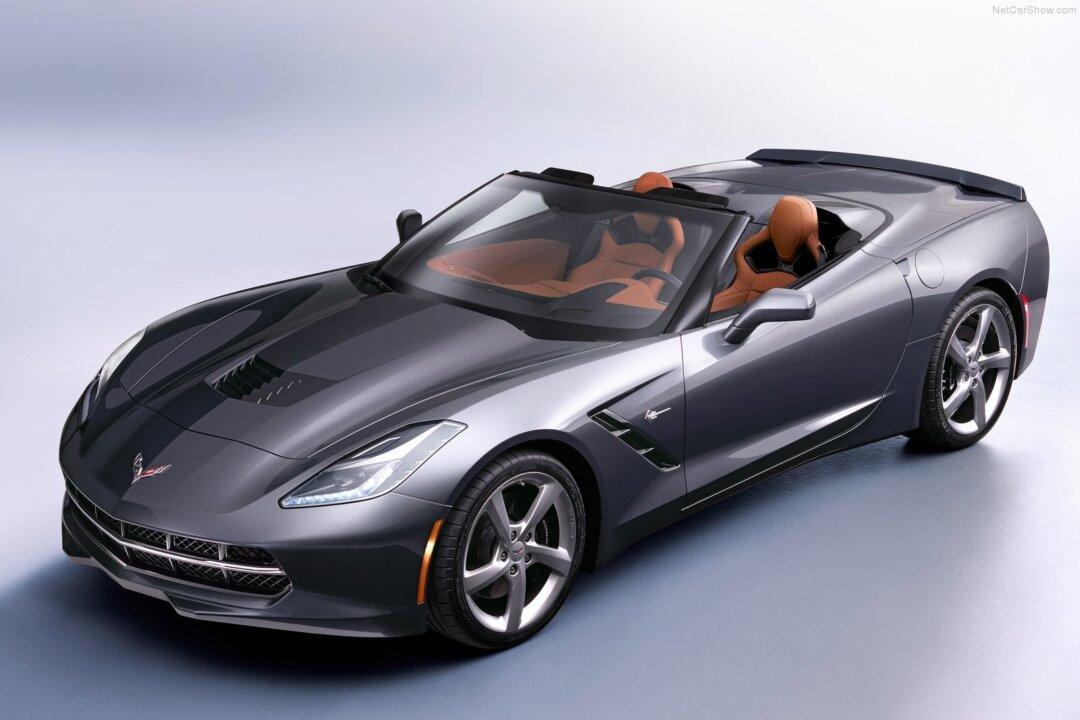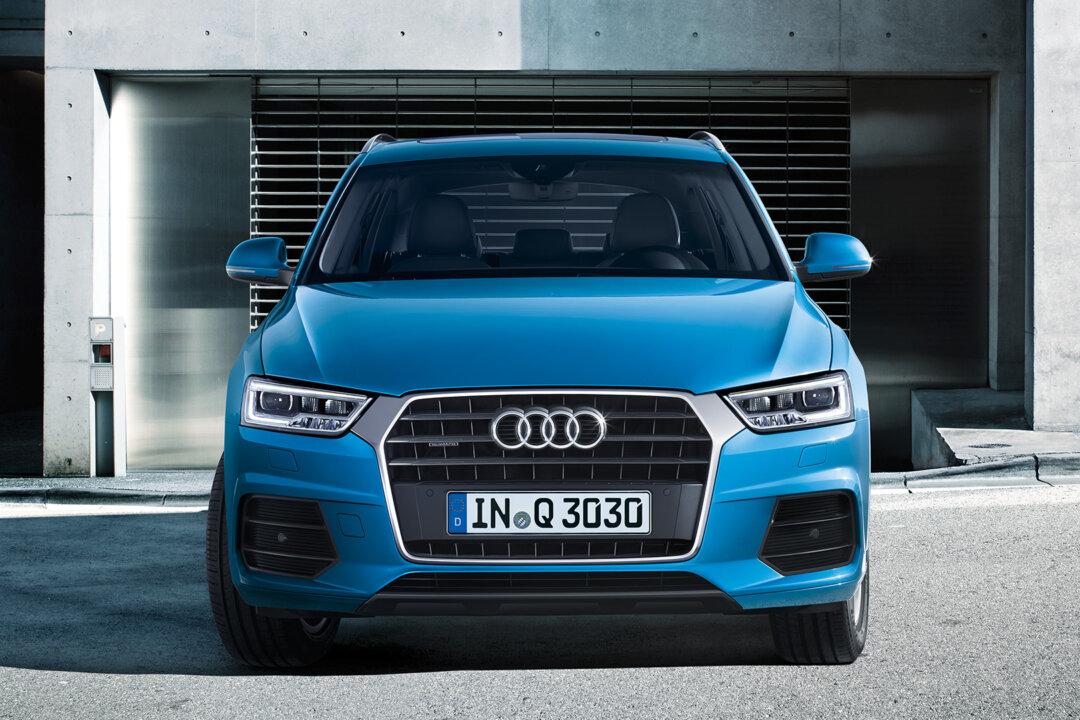The outgoing Cadillac CTS was hard to classify, larger than the BMW 3 Series, but smaller than the 5 Series. Should it be considered a large compact or a small mid-sized luxury sedan? This less-than-world-shattering question has now been answered with the all new 2014 CTS. It’s 4.2 inches longer and rides on a 1.2-inch longer wheelbase than the outgoing car putting it smack dab into 5 Series, Audi A6, and Mercedes E-Class territory.
From a styling standpoint, the decade old Cadillac Art and Science design has never looked better. The design’s evolution is remarkable. The front end is a pleasing blend of curves and angles intersecting in just the right places. The blade-like LED lights at the edges flanking the grille and hood are stunning at night. The design flows rearward with a character line gracefully arching up into rear wraparound taillights. The CTS’s larger size successfully pulls together this marvelous look.
Great design, first-class materials, and top-notch build quality are necessary to compete in this segment, but without outstanding driving credentials, all would be lost. The new CTS is endowed with competitive handling and braking; satisfying—even exhilarating—performance from all three of the available engines; a comfortable and controlled ride from its adaptive suspension system; and interior solitude ranking with the best in class.
The three available engines include a 2.0 liter turbocharged four making 272 horsepower and a prodigious 295 pound-feet of torque, a 3.6 liter V6 rated at 321 horsepower and 275 pound-feet of torque, and a turbocharged version of the 3.6 liter—called the Vsport—is good for 420 horsepower and 430 pound-feet of torque. All-wheel drive is available on both the four and standard V6. The 4-cylinder engine is mated to a six-speed automatic, while the V6 entries get a new eight-speed.
The engine choices are excellent and we recommend any of the three based on your need for performance and your desire to achieve the best possible gas mileage. For comparison, the Vsport offers rousing performance measured at 4.5 seconds from 0-to-60. For the less adventurous, the turbocharged four and the standard V6 deliver the goods as well. The 2.0 liter has been measured at 0-to-60 in 6.2 seconds and the V6 is timed at 6.0 seconds flat. Mileage from the rear-driven 3.6 liter is acceptable at 18 city, 29 highway, and 22 combined on regular gas. The turbocharged four does slightly better at 20/30/23.
For our test we drove the 321-horsepower V6 with excellent off-the-line performance and good mid-range power for merging into high-speed traffic and quickly passing a slow-moving vehicle on a narrow stretch of two-lane blacktop. While it’s not the quickest car in the segment, it’s satisfying and composed, with a dialed-in feel, and steering that is spot-on. One anomaly we did encounter, the seat belts cinched up to an almost uncomfortable level once the car was moving.
The interior is rather busy, but stunning. The fit and finish are what you would expect from mid-sized luxury, and the leather, wood, aluminum, and carbon fiber are all genuine and pleasing. The gauges are clear and easy to read. We have issues however, with the new CUE infotainment system that we have encountered in several models since its introduction a couple of years ago. We’re still not sure how to pre-set a radio station even after perusing the owner’s manual. What’s wrong with old-fashioned buttons even if they are on a screen? And sliding a finger across a bar to raise or lower the volume or stabbing at a climate control button is tedious—and distracting—while driving. There needs to be some serious changes in the design of this new technology.
One piece of technology that works well is the automatic dim and bright headlamps. The oncoming light sensors keep excellent on/off control of the high beam lamps.
While the CTS grew in exterior dimensions, rear-seat passenger space has remained about the same, which means it’s tight for a mid-sized sedan. Trunk space is adequate, but on the short side of segment norms, at 13.7 cubic feet.
The CTS starts at $46,025 and rises through the trim levels and engine sizes to the Vsport Premium at $70,045. Our well-outfitted 3.6L Premium test car carried a bottom line of $67,075.
Can the CTS effectively compete with the standard go-to European cars in the luxury middle? We suggest you do a walk around, spend a few minutes inside the cabin, and then drive the CTS. Your preconceived notions are apt to be altered. To sum it up, the new CTS has got the right stuff. BMW, Audi, and Mercedes have been put on notice.
2014 Cadillac CTS: All the Right Stuff
The outgoing Cadillac CTS was hard to classify, larger than the BMW 3 Series, but smaller than the 5 Series. Should it be considered a large compact or a small mid-sized luxury sedan? This less-than-world-shattering question has now been answered with the all new 2014 CTS. It’s 4.2 inches longer and rides on a 1.2-inch longer wheelbase than the outgoing car putting it smack dab into 5 Series, Audi A6, and Mercedes E-Class territory.

2014 Cadillac CTS Courtesy of NetCarShow.com
|Updated:



